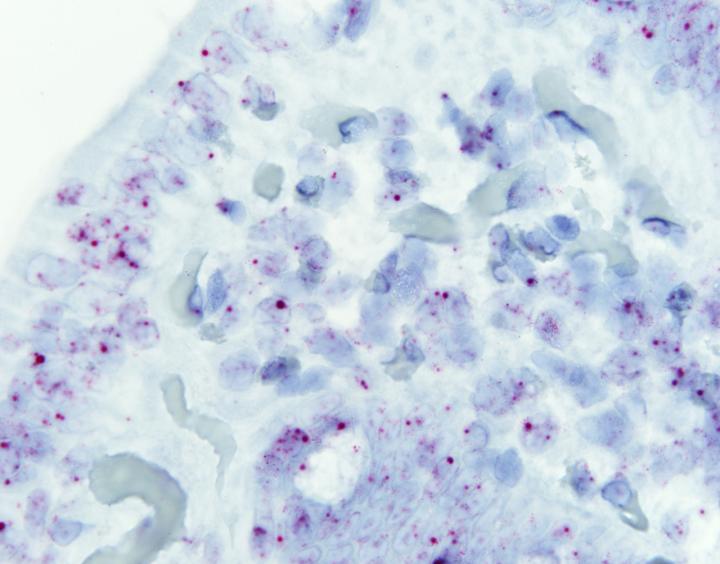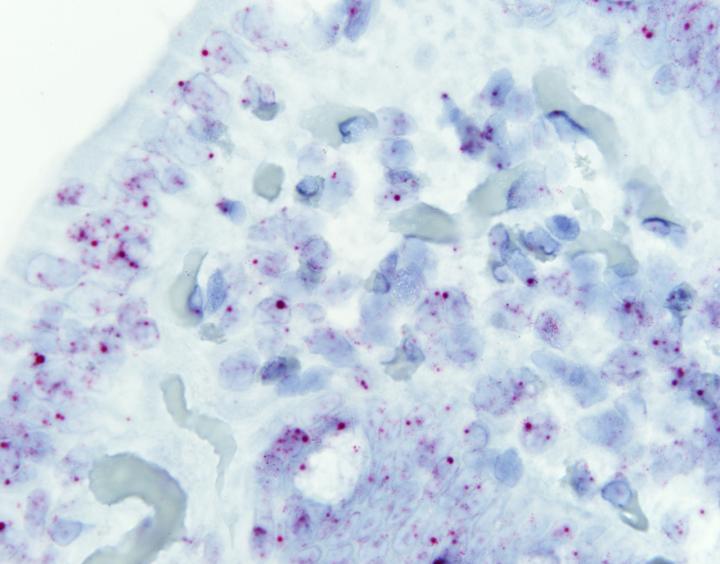
Coeliac disease is a chronic, immunological disease that is manifested as intolerance to gluten proteins present in wheat, rye and barley. This intolerance leads to an inflammatory reaction in the small intestine that hampers the absorption of nutrients. The only treatment is a strict, life-long, gluten-free diet.
It has been known for some time that coeliac disease develops in people who have a genetic susceptibility, but despite the fact that 40% of the population carry the most decisive risk factor (the HLA-DQ2 and DQ8 polymorphisms), only 1% go on to develop the disease. “What we have here is a complex genetic disease in which many polymorphisms play a role, each making a very small contribution to its development,” explained the UPV/EHU researcher Ainara Castellanos, who has led the work published in Science.
One of the added risk factors is to be found, according to this research, in the so-called ‘junk’ DNA, in other words, in 95% of the DNA. It is the least-known part because, unlike the remaining 5%, it is not involved in synthesising proteins. Nevertheless, light is gradually being shed on its role in the control of the overall functioning of the genome, in other words, it regulates important processes in our organism such as immune response and that is where it might be possible to find the causes of auto-immune diseases such as coeliac disease.
A key gene in the regulating of the inflammatory response observed in coeliac patients has been found in one of the regions of the junk genome: it is the 1nc13. The ribonucleic acid produced by this gene belongs to the family of long, non-coding RNAs or lncRNA and is responsible for maintaining the normal levels of expression of pro-inflammatory genes. In coeliacs, this non-coding RNA is hardly produced at all so the levels of these inflammatory genes are not properly regulated and their expression is increased. But besides being produced in low quantities, the 1nc13 produced by coeliac patients has a variant that alters the way it functions. “That way an inflammatory environment is created and the development of the disease is encouraged,” said Ainara Castellanos.
“This study confirms the importance of the regions of the genome previously regarded as ‘junk’ in the development of common complaints such as coeliac disease and opens up the door to a new possibility for diagnosis. Right now, we are interested in finding out whether the low levels of this RNA are an early feature of coeliac disease (and of other immune diseases), which could be used as a diagnostic tool before its onset,” explained the UPV/EHU’s lecturer in Genetics José Ramón Bilbao, another of the authors of the work.
###
UPV/EHU researchers
The research published in Science was conducted during the post-doctoral internship of the biologist Ainara Castellanos-Rubio at the laboratory of Prof Sankar Ghosh at the University of Columbia (USA). The project had the collaboration of the group led by Dr José Ramón Bilbao. This group has extensive experience in research into the genetic factors in coeliac disease and Dr Castellanos has re-joined it thanks to a Juan de la Cierva Grant. Nora Fernández-Jimenez of the UPV/EHU, who is currently a post-doctoral researcher at the IARC in Lyon, also participated in the study.
Bibliographical reference
A long noncoding RNA that is associated with susceptibility to coeliac disease. Ainara Castellanos-Rubio, Nora Fernandez-Jimenez, Radomir Kratchmarov, Xiaobing Luo, Govind Bhagat, Peter H. R. Green, Robert Schneider, Megerditch Kiledjian, Jose Ramon Bilbao, Sankar Ghosh. Science, 2016; 352 (6281): 91 DOI: 10.1126/science.aad0467
Media Contact
Matxalen Sotillo
[email protected]
34-688-673-770
@upvehu
http://www.ehu.es
The post A key gene in the development of celiac disease has been found in ‘junk’ DNA appeared first on Scienmag.





